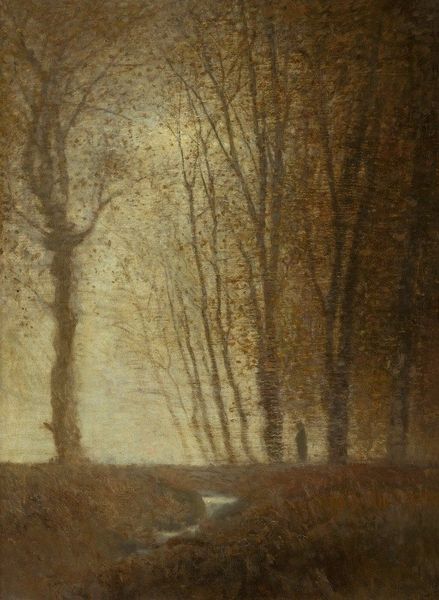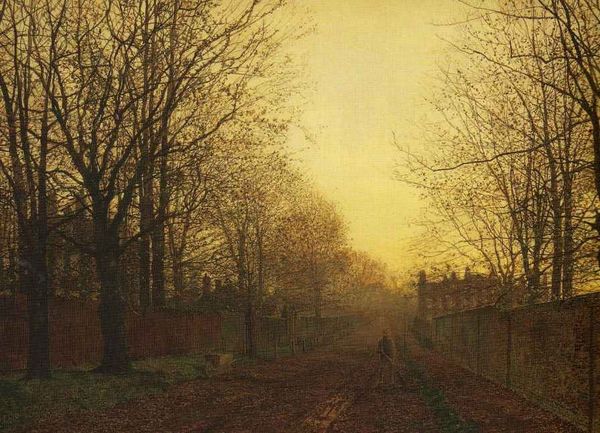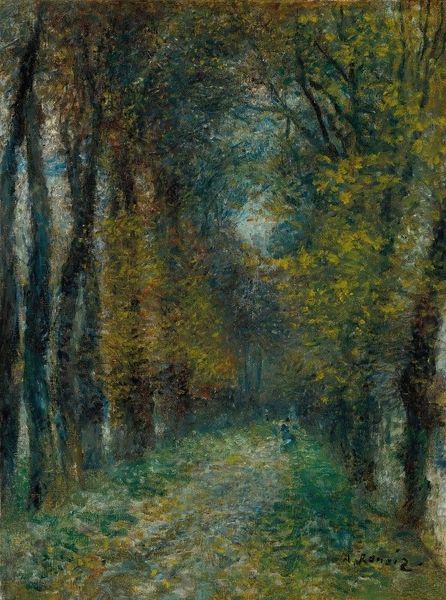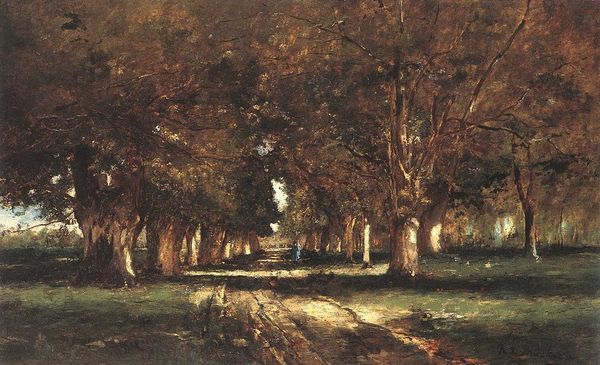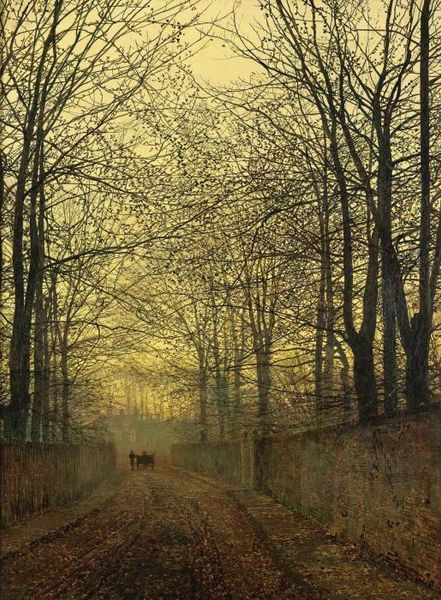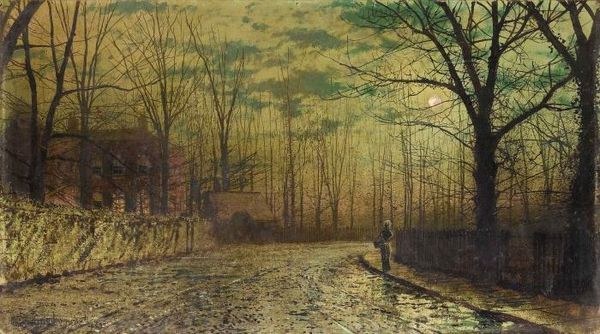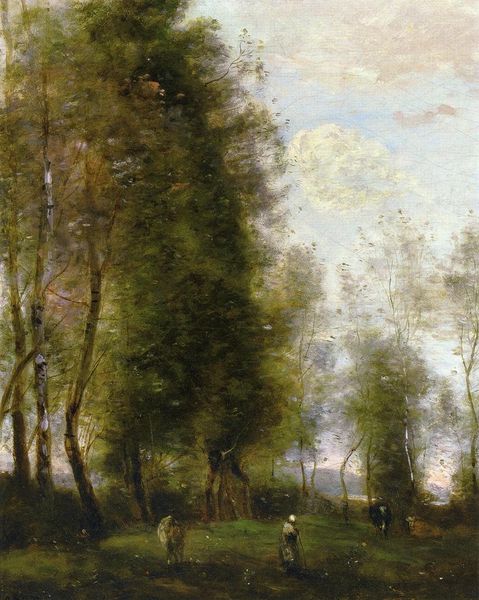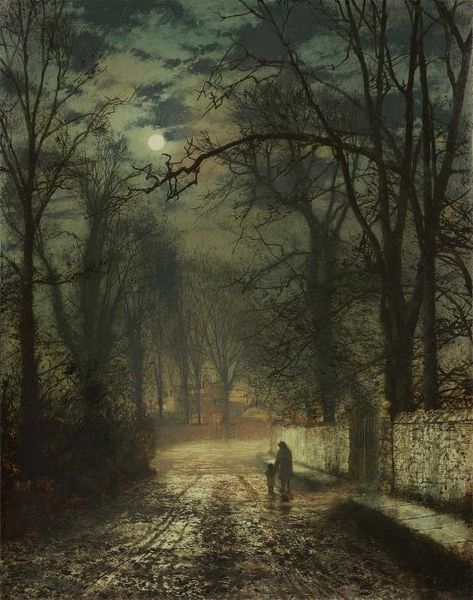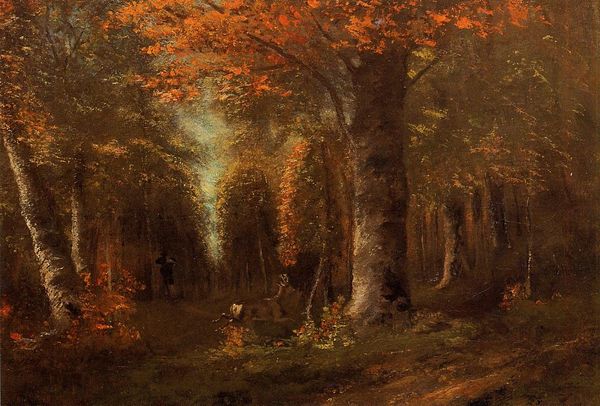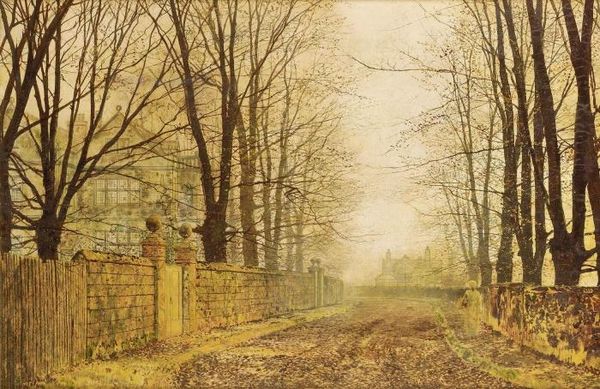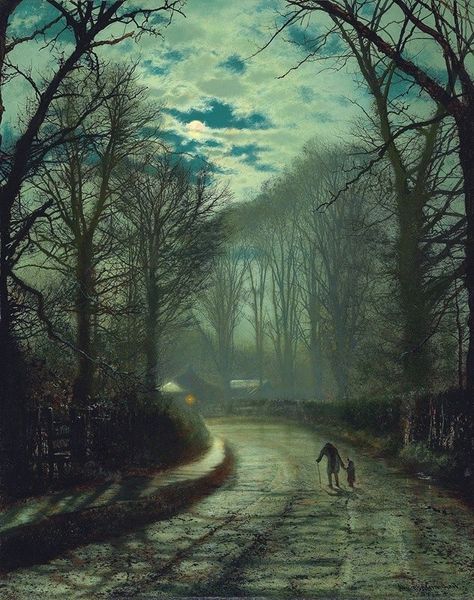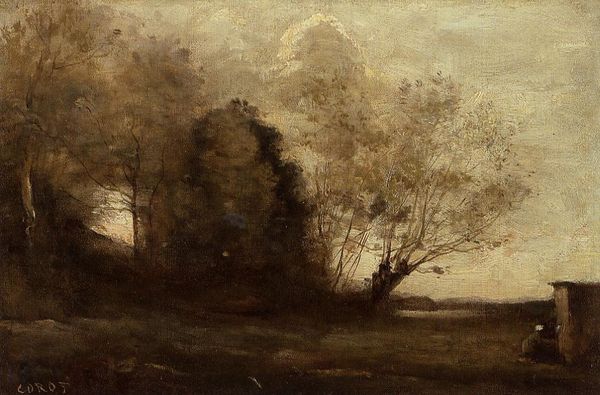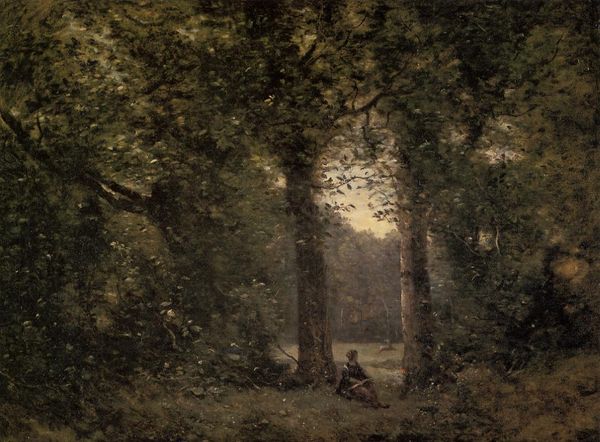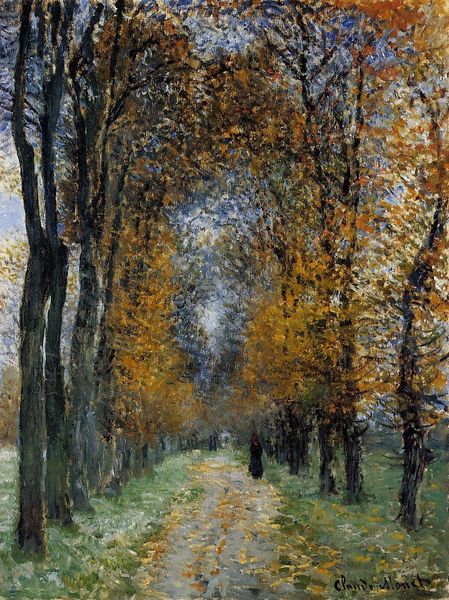
Dimensions: 86.4 x 127 cm
Copyright: Public domain
Editor: Here we have Arthur Lowe’s 1916 oil painting, “Autumn”. It feels quite melancholic to me, this hazy avenue of trees… Almost like a memory fading. What do you see in this piece? Curator: Indeed. Beyond the immediate visual experience, consider what autumn *represents*. Decay, transition, the coming of darkness… Lowe painted this during the Great War. Is it possible to see these trees not just as nature, but as symbols of a generation cut down? The landscape tradition carries profound weight, think of Caspar David Friedrich’s “Wanderer Above the Sea of Fog.” Editor: So you’re saying the scene might be speaking to something beyond just the changing of the seasons? That there could be, perhaps, a connection to the collective trauma of war? Curator: Precisely. The hazy atmosphere – almost a kind of shroud – reinforces that idea. The Romantic style, which sought emotional intensity, often employed landscape to reflect inner states. And remember the tradition of the "pathetic fallacy", where nature reflects human feelings. Do you see that at play here? Editor: That's interesting. I hadn't thought about that relationship between the human condition and the natural world within the context of this piece. The “shroud” does suggest a darker mood than I initially considered, it’s a great perspective. Curator: Consider too that "Autumn", as a visual signifier, suggests something more that pretty foliage. This composition offers a path through this “forest.” Ask yourself: what is nature *meant* to suggest as one moves toward an undefined horizon? A spiritual path? A physical journey through life? It also reflects memory and continuity, doesn’t it? Editor: I will certainly keep all of that in mind. Thanks for guiding me towards those interpretations. I appreciate seeing how much can be “read” into what seemed, at first glance, a straightforward landscape painting. Curator: My pleasure! And remember, art, at its best, reflects back to us our own complex humanity.
Comments
No comments
Be the first to comment and join the conversation on the ultimate creative platform.
